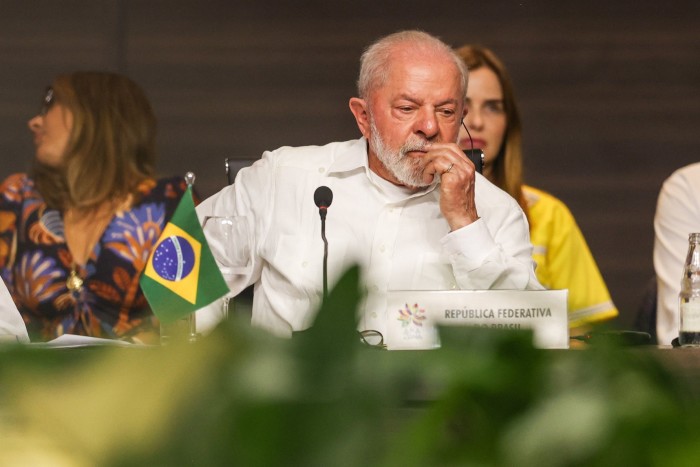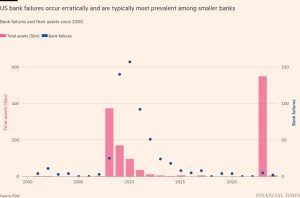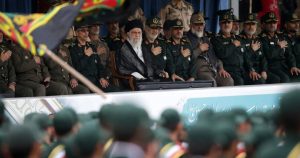Focus shifts to the Amazon for Brazil’s rainforest climate talks

Arriving in Belém by air, it is easy to understand why the Brazilian city was chosen to host next year’s COP summit. Vast swaths of Amazon rainforest and large meandering rivers dominate the horizon — visual reminders of the importance of nature in tackling climate change.
The city, however, tells a different story. Once a booming port and a transit point for the Amazonian rubber trade, Belém flourished in the early 20th century but, today, the northern city of 1.3mn is a shadow of its former self. Among the poorest of Brazil’s state capitals, Belém suffers from congested streets, decaying housing and endemic crime.
It also lacks modern infrastructure, notably the hotels and transport systems needed to host the tens of thousands of people expected for the 15-day UN climate summit — leading to suggestions the meeting may be split between Belém and a larger location in Brazil.
And all aspects of the COP30 summit, set for November 2025, are already in sharp focus, even as this year’s climate talks begin in Baku, Azerbaijan.
The central task in Brazil will be assessing whether the climate policies of almost 200 countries are on track to meet the Paris agreement goal of limiting global warming to no more than 1.5C in the industrial era. It will be the first opportunity to review progress after a February 2025 deadline for countries to formally lodge upgraded climate pledges with the UN.
Brazil has begun to steer policy plans as part of a “climate troika” with Azerbaijan and the United Arab Emirates, last year’s host. The UAE prompted the initiative, to improve continuity in the COP process.
Since Brazil was announced last year as the 2025 host, the federal government has doled out more than $800mn to Belém and the state administration of Pará to boost local infrastructure ahead of the event.
“The significance of [having COP in the city] is important. There is nothing about Brazil that is talked about more in the world than the Amazon,” said President Luiz Inácio Lula da Silva at the time.

“It is important that we take care of the ecosystem [and] the biodiversity, but it is very important that we take care of the people who live in the Amazon,” Lula added — highlighting how poverty in places like Belém often drives citizens to environmental crime, such as illegal logging or gold mining.
Over the past two years, President Lula has cut deforestation and announced ambitious targets to reduce emissions. But Brazil remains committed to oil production to drive economic development and alleviate poverty.
Environmental campaigners have pointed out that all three countries in the climate troika are set to increase their oil and gas production between 2023 and 2035.
“Belém, like most Brazilian capitals, has significant infrastructure problems that may make it quite difficult to host high-impact events like COP,” says Creomar de Souza, founder of consultancy Dharma Political Risk and Strategy. “The works with the greatest impact should have started quite some time ago,” he points out.
There are big concerns about accommodation. The city has an estimated capacity of around 18,000 hotel beds, well below the 50,000 that could be needed. Regular visitors note only a handful of hotels are suitable for business travellers — and practically none for high-ranking delegations.
In response, local authorities have unveiled measures to handle the expected influx of guests, including the construction of several high-end hotels, converting schools into hostels, and anchoring cruise ships in the port to serve as floating residences.
Authorities have also been in talks with Airbnb and Booking.com as part of a push to encourage locals to rent out their homes during the summit, according to people familiar with the plans.
Helder Barbalho, governor of the state of Pará, has pledged that Belém will be ready by August and has championed the investments as a means to transform the city — particularly its potential for tourism.
In addition, he has highlighted how the rainforest COP will differ from previous summits.
“We don’t want to hold a COP like Dubai did, with its large buildings and grand avenues,” Barbalho said this year. “For those who want to see the great rivers, the large trees and the people of the forest, Belém will be hosting the COP of forests, the greatest environmental experience of all COPs.”

Experts and environmentalists echo that sentiment, saying that Belém offers a chance to refocus on core issues after the extravagant COP summits of the past.
“COP has grown into a massive event,” says Natalie Unterstell, president of the Talanoa Institute, a climate policy think-tank. “I believe that this scale reflects the urgency and complexity of the climate crisis, but it also raises questions about whether the COP’s size hinders meaningful dialogue.
“Belém calls for rethinking the size and structure of the COP to ensure the negotiations are preserved, focused and effective.”
The infrastructure challenges have prompted calls from some diplomats for the Brazilian government to split the event across two cities. They have suggested Belém for ceremonial and political events, while using São Paulo, Rio de Janeiro or Brasília as a base for the wider negotiating teams.
The government, however, has rejected that idea.
“Dividing the event will only divide the problems and increase the costs,” Valter Correia da Silva, special secretary for COP30, told local media.
“COP was planned from the beginning to be held in the Amazon,” he said. “The symbolism of that location is great. The president has always insisted that everything would be held in Belém, and it will be.”
#Focus #shifts #Amazon #Brazils #rainforest #climate #talks




